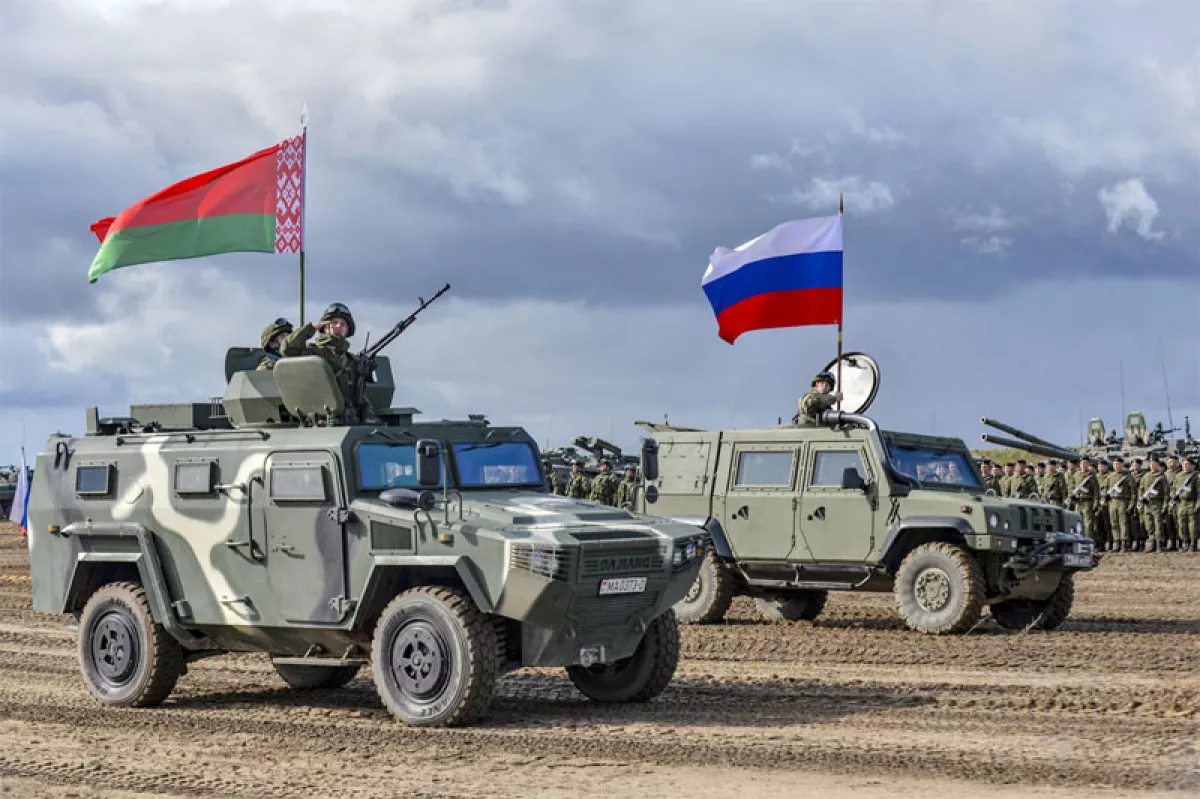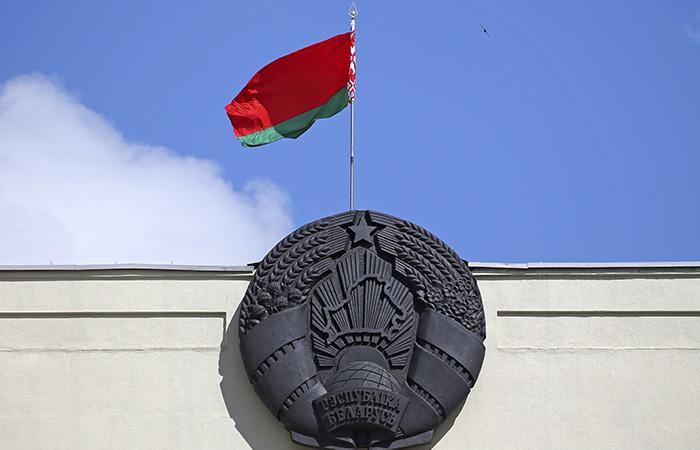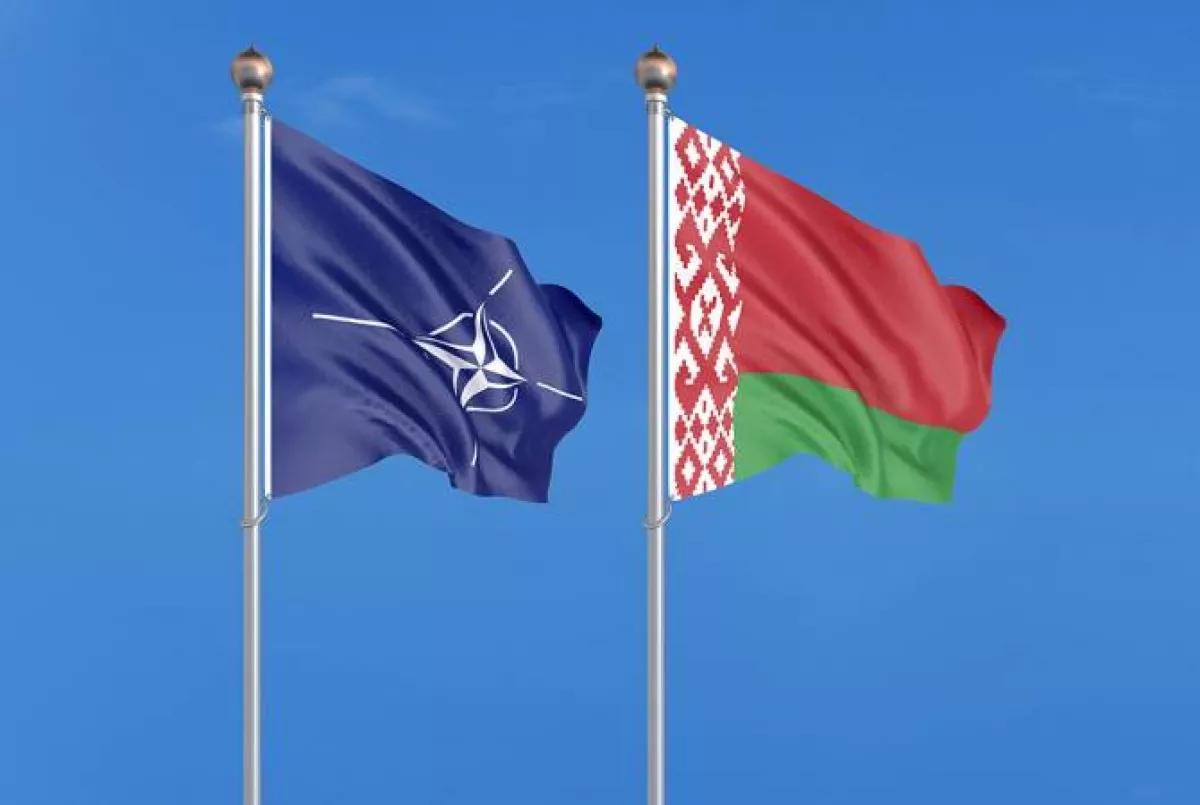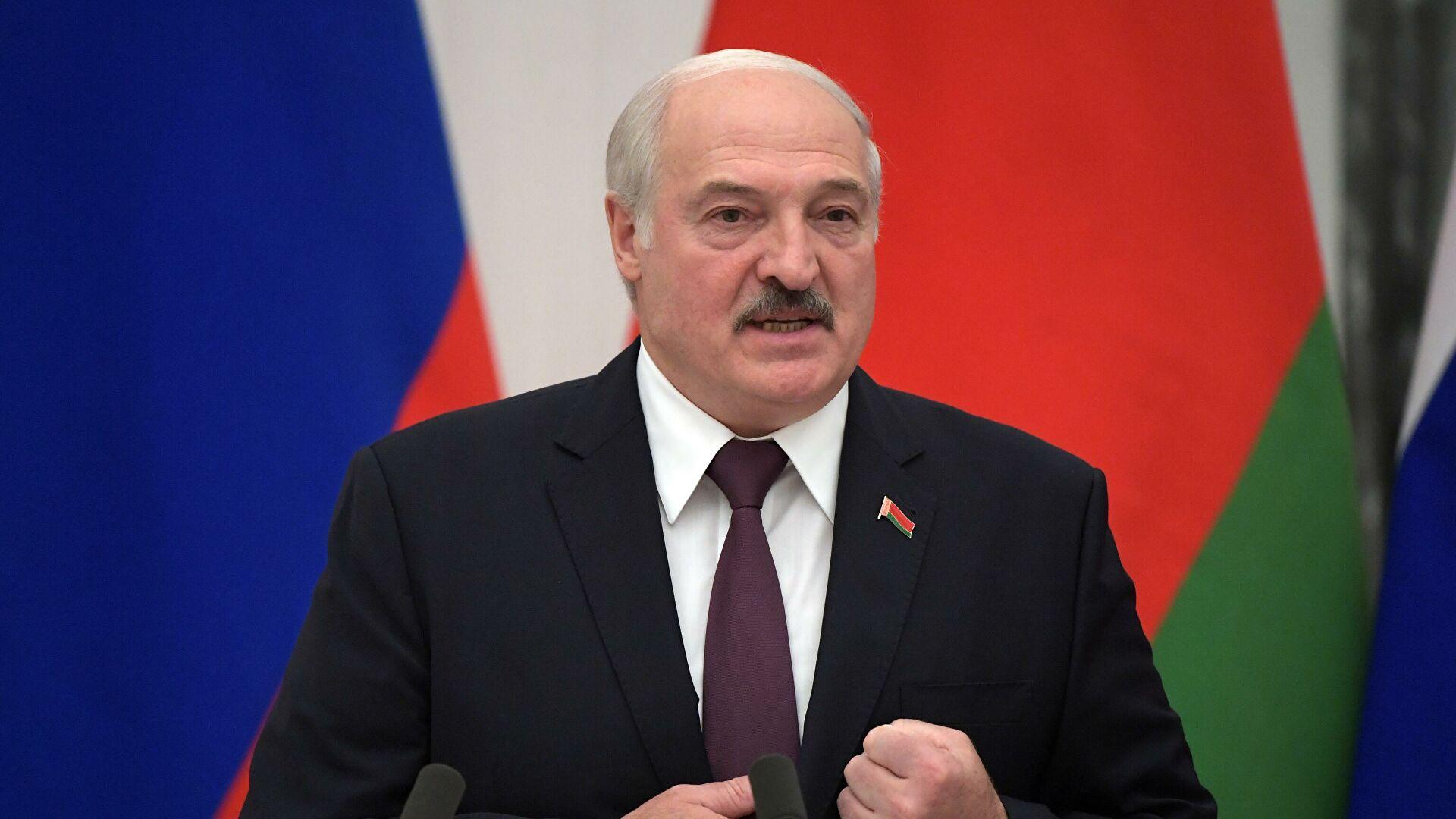Western cynicism in Eastern Europe Why the West let Belarus slip into Russia’s orbit
Publicly, EU–NATO countries claim their aim is to prevent the escalation of conflict in Eastern Europe and keep the front line from advancing towards their borders. On May 28, they had a real opportunity to act on those words.
Minsk once again invited NATO to send observers to military exercises on Belarusian territory. In a clear gesture of de-escalation, the Belarusian side even scaled down the scope of the drills and relocated them further from NATO borders.
If EU–NATO members were genuinely committed to containing the conflict and bolstering Ukraine’s northern security, this offer would have been a valuable chance to build trust and prevent misunderstandings. Instead, their response was deafening silence.
Worse still, for years the EU–NATO countries have been working towards dividing spheres of influence with Russia, gradually nudging Belarus closer to the Kremlin — likely hoping to secure Ukraine in return. All this has been done under the cheerful, self-righteous howling about democracy and human rights.
Not a single chance for peace in Eastern Europe
The essence of the proposal made on Wednesday by Belarusian Defence Minister Viktor Khrenin to the EU–NATO countries comes down to a simple formula that creates a moment of truth for them — and reveals what they truly want in the fourth year of the war. Are they willing to engage in dialogue for de-escalation in the region north of Ukraine?
Speaking at a meeting of the Council of Defence Ministers of the Collective Security Treaty Organisation (CSTO), Khrenin outlined a series of steps Belarus is taking to ease regional tensions.
Specifically, Minsk is adjusting the parameters of the Belarusian-Russian military drills “Zapad-2025” — reducing the number of participating troops by nearly half and relocating the exercises deeper into Belarusian territory. As a result, the manoeuvres no longer even fall under the OSCE's provisions for prior notification and observer invitations.
Nonetheless, Minsk has once again extended an open invitation to anyone interested in observing the drills. While the collective West continues to accuse Belarus of complicity in the war against Ukraine, the Belarusian side once more offers them a chance to see the reality for themselves — and it is telling that they refuse.

Incidentally, these exercises have been held in Belarus every two years since the late 2000s. From the very beginning, they have been accompanied by sensationalised narratives in Western and pro-Western media — tales of preparations for an attack on Warsaw, rehearsals for an invasion of Ukraine, or plans to secretly leave Russian troops behind after the drills, and so on.
Belarus has always hosted NATO and Ukrainian observers at these exercises in accordance with OSCE agreements. However, in recent years, all of them have abandoned any military transparency measures. They were also invited to observe “Zapad-2025” — as early as the beginning of the year — but have not responded to the invitation.
Instead, Western and pro-Western media have resumed spreading stories about aggression being prepared under the guise of military drills. Meanwhile, NATO countries bordering Belarus have launched their own series of exercises — from airborne battalion landings to divisional-level tank manoeuvres.
As the Belarusian Defence Minister noted: “The Polish side, like other NATO member states, is unwilling to clarify the parameters of our exercises, refuses dialogue, and ignores our invitation — which would allow them to see for themselves what will take place during these drills, what elements we will be practising, how many troops will be involved, and that we are not violating any agreements.”
Incidentally, in recent years, almost no one — apart from Belarus — has been adhering to these agreements.
But could it be that Minsk opted for de-escalation and scaled down the drills under pressure? In fact, Belarus’s current position in terms of hard power looks relatively solid.
Although, unlike all of its neighbours, Belarus has made virtually no significant increase to the size of its armed forces over the past decade, it has nonetheless acquired new weaponry. Just on May 30, a new batch of Mi-35M attack helicopters was delivered, and three days earlier, additional Su-30SM2 fighter jets arrived.
Moreover, for objective reasons, the military pressure on the country’s southern — and most vulnerable — borders with Ukraine has begun to ease. It was precisely due to that pressure that Minsk agreed, a couple of years ago, to host Russian tactical nuclear weapons on its territory.
And finally — though no less significantly — the EU–NATO countries have by now come to realise that their attempts to overthrow the government in Minsk have failed.
Does the West still recognise Belarus’s independence?
In other words, Minsk’s proposal to the EU–NATO was not born out of desperation, but rather aimed at preventing a larger war. Yet for now, it cannot expect a favourable response.
And the issue goes beyond the distorted perceptions of Belarus that certain media outlets and NGOs — with Western backing — first manufactured and then fed to Western institutions and politicians. They have constructed an absurd narrative, blending the image of a “European North Korea” with claims of a supposedly “weak regime,” seasoned with hints about the latent strength of the opposition.
This illogical stew has been simmering for years, carefully prepared by pro-Western forces to justify the notion that dialogue with Minsk is pointless — because Belarus was supposedly destined to be overthrown.

Absurd illusions were among the key factors that led Eastern Europe to the current war. The attempt by pro-Western forces and EU–NATO countries to bring down the Belarusian state ended up collapsing the regional balance of power — ultimately giving Russia a more advantageous starting position ahead of February 2022.
Yet the root cause of all this — including the current dismissive attitude towards Minsk’s proposals — lies much deeper than ideological constructs in the minds of politicians.
The West’s indifference to Belarusian de-escalation efforts fits into a broader, unmistakable reality that has long been clear to anyone seriously following developments in Eastern Europe: the EU–NATO countries do not want an independent Belarus. In practice, they have come to view it — especially after 2022 — as part of Russia.
This is a harsh conclusion, and difficult to accept. But it is the only framework that makes sense of the West’s behaviour in the region. If something looks like a duck, quacks like a duck, swims and waddles like a duck — then it is a duck.
This reality becomes clear in how EU–NATO countries increasingly blur the distinctions between Belarusian and Russian citizens, companies, and government bodies. At times, Belarus is automatically included in documents targeting Russia; other times, it is simply implied without mention.
Already a couple of years ago, Western European financial institutions began openly applying EU directives against Russia to Belarus as well — even though Belarus was never explicitly named in those regulations.
Essentially, we are witnessing a de facto and growing refusal by the West to recognise the Belarusian state. This advanced stage of rejection increasingly resembles Russia’s own call for an Anschluss.
This is not just a matter of legal formalities — it is about destroying the very conditions necessary for Belarus to survive as an independent state. The facts speak for themselves: Belarus faces a total air blockade and a partial land blockade on all its borders except the Russian one.
Worse still, due to Western sanctions, it is often even harder to reach Belarus or send goods there via third countries than it is to do so with Russia.
Yes, officially the countries of the collective West have not withdrawn their recognition of Belarusian independence, although politicians and officials from neighbouring states openly spoke in the late 2010s about Belarus lacking “full sovereignty,” probing the possibilities for further denial of its status as an independent state.
But today there is an undeniable fact: the level of diplomatic representation between Belarus and EU–NATO countries has been downgraded for several years now. Moreover, it is lower than the diplomatic relations those same Western countries maintain with Moscow — and this downgrade occurred not after the start of the Russia-Ukraine war, but before it, following the “strange Maidan” of 2020 in Belarus.
An old proposal to the Kremlin
And here we come to the crux of the matter — the core issue behind the collective West’s growing disregard for Belarus in recent years. This stands in stark contrast to the rapid abandonment by the EU–NATO of rigid ideological claims against a number of other countries and political actors.

It’s all about geopolitical bargaining. More precisely — the prolonged attempt by EU–NATO countries to push through a certain geopolitical scheme that would reshape the entire Baltic-Black Sea region in their favour.
The West often accuses its opponents of wanting to divide the world into spheres of influence. They claim that unlike the “cynical autocrats,” the high-moral liberal gentlemen of the collective West follow noble moral principles. Among these principles are support for independence and sovereignty, democracy, and human rights.
We have already written about the peculiar understanding that the pseudo-liberal Western establishment has regarding the last two points — monopolisation of power by a political minority and selective manipulation of elections are acceptable to them, but only when it concerns their “own” and serves to preserve the political model they favour.
Human rights are important to them mostly in terms of LGBTQ+ issues, while millions can languish in poverty, and authorities can invade citizens’ minds, brainwashing them with “correct ideas” about the past and present.
It might seem that regarding the first two points—support for independence and sovereignty—the situation looks different. But as we’ve already noted above, that is not the case. In fact, over the past decade, the EU–NATO have been working towards a grand bargain with Russia, regularly accusing Russia of this very intent, while essentially pursuing it themselves. There is no doubt such a goal exists; the question is whether it will be a genuine exchange or merely an attempt to use yet another country as bait against Russia.
Today, it appears that Belarus was marked by the Western powers “for exchange” as early as the beginning of the 2010s, amid the formation of the Eurasian Economic Union (EAEU). Although Minsk was hesitant about Eurasian economic integration at the time, this did not concern the West—they were only interested in Ukraine, where another Maidan was organised.
No serious alternative was ever offered to Minsk by the West back then.
Meanwhile, already in the 2000s, Belarus began building its foreign policy around a pursuit of neutrality. The idea was to create a nuclear-free, inclusive region stretching from the Baltic to the Black Sea. At one point, President Lukashenko even discussed with his Lithuanian counterpart, Paksas, the possibility of demilitarisation that would include Russia’s Kaliningrad region.
And these were not just empty words: Minsk even restructured its security architecture to align with these goals. Throughout the 2010s, divergence grew between Minsk and Moscow even in the military sphere — different equipment, training, and troop organisation.
Against the backdrop of the escalating confrontation between Kyiv and Moscow since 2014, Minsk demilitarised its border with Ukraine — along the thousand-kilometre frontier, only garrisons in Brest and Gomel remained.
The West does not want a neutral, independent country
The response to this was further sanctions from the EU-NATO states against Minsk, vilification of the country, and the deployment of new NATO forces along its borders. As Western influence in Kyiv grew, more and more troops appeared along the Belarusian-Ukrainian border, while Ukrainian intelligence agencies began forming separate armed units from Belarusian opposition activists.
Were they fighting against Russia? Not really. Amidst all this, many activists of the same pro-Western Belarusian opposition speculated that the “democracy” and liberalism they desired would actually be brought to Belarus by the Russian leadership — after all, Russia was allegedly building a “liberal empire.” There is little doubt that their mindset aligned perfectly with the designs of their allies in the EU-NATO countries.

The key role in torpedoing Belarus’s neutrality — that of Russia’s closest ally — was played by the European Union. They simply had no real interest in it. Unlike the EU, the Americans during Trump’s first term recognised a genuine opportunity to stop Eastern Europe from sliding into a spiral of confrontation. Trump’s national security advisor John Bolton even visited Minsk at that time and later participated in a four-way meeting with the security council secretaries of Belarus, Ukraine, and Poland.
Everything was finally settled in 2020. In an instant, pro-Western media and NGOs in Belarus fiercely backed the “fighters for democracy” — including a Gazprom executive and a newcomer from Russia with a murky past and recent sympathies towards the “Russian world.” This was no accident or misunderstanding: politicians and officials from EU-NATO countries, “independent NGOs” focused on democratization, and no less “independent media” outright refused to discuss the backgrounds of these candidates or other oddities of that campaign — from the clearly non-Western and non-Belarusian sources of funding for the Tikhanovskys to the appearance of Wagner Group mercenaries near Minsk (about whom fantastical theories circulated, ignoring the most obvious one — their intention to participate in post-election events).
Everything that followed after 2020 was a continuation of those trends — the EU-NATO forces relentlessly pushed Belarus into Russia’s orbit, labeling it as the “last dictatorship in Europe” and shedding crocodile tears of Schadenfreude over its inevitable annexation. This starkly contrasted with the simultaneous hard bargaining over Ukraine, where any compromise deal with Russia — such as neutrality plus self-governance for the two eastern regions — was outright rejected. It gave the strong impression that a deal was being pushed that included an unspoken but clear component: “Belarus in exchange for Ukraine,” with Moscow refusing the proposed terms.
Judging by subsequent events, this scheme not only failed but backfired spectacularly. Amid these cynical intrigues, Russia managed to advance much further westward. Yet, even the war has not broken this reckless plan, as Western behaviour clearly demonstrates.
By pushing Belarus closer to Russia, the West may again fail to achieve the desired outcome — instead, it could provoke something quite different, such as a deeper rapprochement between Belarus and China. Belarus itself has now become a member of the Shanghai Cooperation Organisation (SCO), established by Beijing, and is actively taking initiatives to bridge post-Soviet frameworks like the Eurasian Economic Union (EAEU) and the Collective Security Treaty Organization (CSTO) with Chinese initiatives and structures such as the Belt and Road Initiative and the SCO.
Last year, when Alexander Volfovich, Secretary of the Belarusian Security Council, spoke about Minsk’s plans to build a “new system of international security in the Eurasian space,” he mentioned the CIS, SCO, and even the Conference on Interaction and Confidence-Building Measures in Asia (CICA). Noticeably absent were the OSCE and other European institutions — a clear consequence of the sanctions against Minsk, the country’s semi-blockade, and the cynical attempts to use it as a pawn in geopolitical bargaining.
China, incidentally, did not miss the opportunity to support the Belarusian government, thereby entering a sphere that “united Europe” had long considered its own. In fact, it was precisely after the collective West started pushing Belarus “towards Russia” that Belarus-China ties began rapidly expanding, especially in the sensitive areas of military and internal security cooperation. Yet, as current events show, this lesson remains unheeded by the EU and NATO countries.
The moral is simple: when pseudo-liberal ladies and gentlemen begin telling you about their intentions to help your people strengthen rights, democracy, and sovereignty — strengthen your air defences and modernise your tank fleet.








